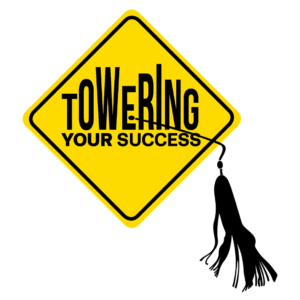by Guest Author
 Education remains one of the costliest sectors worldwide to operate despite this significant investment in the industry annually. The federal government spends nearly $79 billion annually on primary and secondary education programs (newamerica.org). Despite this investment, education professionals are constantly in search of funding to respond to budgetary deficits and to expand opportunities for students and families. Many organizations seek grants–public/private resources used to fund a project or idea–to supplement and reinforce their budgets and reserves so they can operate their schools and districts effectively. Fortunately, there are several funding sources available at the local, state, and national levels to respond to and resolve these fiscal challenges. However, obtaining these funds can be highly complex and competitive. For this reason, it is essential that potential grant recipients approach the grant writing and application process strategically by conducting a proper Needs Assessment; Eligibility Evaluation; and Readiness Check.
Education remains one of the costliest sectors worldwide to operate despite this significant investment in the industry annually. The federal government spends nearly $79 billion annually on primary and secondary education programs (newamerica.org). Despite this investment, education professionals are constantly in search of funding to respond to budgetary deficits and to expand opportunities for students and families. Many organizations seek grants–public/private resources used to fund a project or idea–to supplement and reinforce their budgets and reserves so they can operate their schools and districts effectively. Fortunately, there are several funding sources available at the local, state, and national levels to respond to and resolve these fiscal challenges. However, obtaining these funds can be highly complex and competitive. For this reason, it is essential that potential grant recipients approach the grant writing and application process strategically by conducting a proper Needs Assessment; Eligibility Evaluation; and Readiness Check.
Before applying for any grant, you should conduct a thorough Needs Assessment. This evaluation can be informal but should yield the results necessary to properly assess the needs in your school or broader community. In a thorough Needs Assessment, data is collected, synthesized, and analyzed to define your organization’s need(s). Data can include, but is not limited to, assessment data, attendance data, census reports, surveys, focus groups, literature reviews and any other relevant local, state, or national studies or reports. After completing the data collection process, you should synthesize and analyze your findings to highlight the most urgent academic, social emotional, enrichment, or community needs. It is important to define the most urgent need(s) during this formative process so that you can clearly articulate and demonstrate the need during the grant writing process. Upon identifying your organization’s key areas of interest for improvement, craft SMART goals (i.e., Specific, Measurable, Achievable, Relevant, and Timely). Applicants who best define their organization’s challenges/gaps, and the clear and measurable goals that will be used to address them are often awarded highly sought after and competitive funds.
Once you have identified your organization’s need(s) and crafted goals and objectives to address them, you can properly identify the resources available to help fund your program or project. Evaluating your organization’s Eligibility is essential when applying for grant funding. Applications that do not meet the eligibility requirements are often removed from the pool of applicants and are not reviewed/scored. You do not want to complete all the work needed to submit a grant application only to have your document(s) rejected or the application disqualified because of ineligibility.
Lastly, assess your organization’s Readiness before submitting your grant application for review. You will most likely not have difficulty stating your need and your eligibility, but your organization’s readiness will be the clearest indicator that your school or program is a good candidate for the grant funding you are seeking. In addition to the time needed to successfully complete and submit the application, you must assess your organization’s capacity and structure to determine if it is prepared to meet the grant’s management requirements. Organizations are often expected to have personnel, community support/partners, facilities, and fiduciary assets to be considered for some funding. Some grants also require applicants to demonstrate capacity to sustain the programming with or without grant funding.
After thoroughly completing the suggested pre-work, you should complete your grant application with an understanding of the competition landscape. Your organization will be competing with several applicants who are doing the same work with equal fervor and similar needs. The most thorough, compliant, and eligible applicants will ultimately be awarded the funding.
Towering Your Success, LLC has been instrumental in assisting school, district, and non-profit leaders with obtaining multi-million dollars awards since its inception in 2011. When considering grant funding, it is recommended that you, too, seek assistance from professionals who have been successful in the grant writing and submission processes. It is also important that you distinguish the need for consultancy when considering awards of various amounts. The larger, more competitive grants often require a higher level of expertise and experience to successfully complete the application than some of the smaller, less competitive grants.
For more information on Towering Your Success’s Grant Writing and Development services, visit our website.